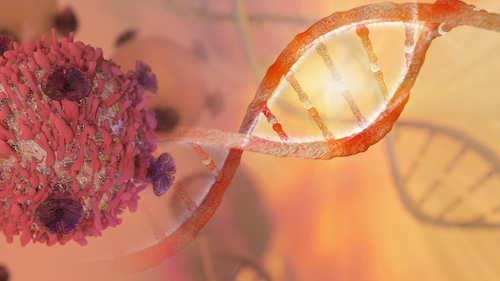
New Brunswick, N.J. - December 4, 2020 – B-cell lymphoma and leukemias (BCL) are a diverse set of malignancies. While the genomic landscape of many BCL subtypes has been described, genomic ancestry has rarely been explored. Investigators from Foundation Medicine, Inc. and Rutgers Cancer Institute of New Jersey, the state’s only National Cancer Institute-designated Comprehensive Cancer Center, examined genomic ancestry in BCL subtypes applying genomic ancestry prediction methodology to comprehensive genomic profiling data and found multiple genomic differences.
Results of the study will be shared at the virtual American Society of Hematology Annual Meeting later this week by presenting author Andrew M. Evens, DO, MSc, FACP, associate director for clinical services and director of the Lymphoma Program at Rutgers Cancer Institute, medical director of oncology services at RWJBarnabas Health, and professor of medicine at Rutgers Robert Wood Johnson Medical School. He and Shridar Ganesan, MD, PhD, chief of molecular oncology, associate director for translational research and the Omar Boraie Chair in Genomic Science at Rutgers Cancer Institute and professor of medicine and pharmacology at Rutgers Robert Wood Johnson Medical School, share more about the work:
Q: Why is this topic important to explore?
A: There are many disparities in cancer related to race or ethnicity. Different racial and ethnic populations experience increased incidence of specific cancers as well as worse outcomes for particular cancers. However, the genomic causes of disparities are poorly understood in most cancers, including a paucity of data in lymphoma. Genetic ancestry reflects the history of human migration, providing background information about genetic variations critical for the genetic association of diseases.
Q: Tell us about the work and what you and your colleagues found.
A: We analyzed DNA and RNA alterations in 2,834 unique patient BCL samples to obtain information on classes of genomic ancestry. Key findings included: enrichment of American (AMR) ancestry (reflecting Hispanic and Latin American population) in patients with B-cell acute lymphoblastic leukemia (ALL). With leukemia in these patients being enriched in the high risk Philadelphia chromosome like ALL, and having greater frequency of mutations in IL7R, IGH, CRLF2, JAK2, and IKZF1 genes.
Diffuse large B cell lymphoma (DLBCL) were primarily of European ancestry, but we identified multiple genomic ancestry differences (e.g., CD79B alterations were enriched in patients of South Asian ancestry; CDKN2A was frequently altered in East Asian ancestry; EZH2 alterations were slightly enriched in American ancestry; and CUX1, a tumor suppressor involved in PI3K signaling, was strongly enriched in African ancestry for both DLBCL and B-cell ALL.
Q: Why are these results significant?
A: This study identified multiple important genomic differences in BCL malignancies using genomic ancestry rather than patient-reported descriptive variables. Further analysis of ancestry informative markers in BCL, including enrichment of ancestry markers in specific cancer subtypes and ancestry-associated enrichment of specific genomic alterations, may lead to new insights into why some cancers may occur more frequently in certain populations, and help identify better strategies for prevention, early diagnosis and targeted treatments.
At ASH 2020: Dr. Andrew Evens of Rutgers Cancer Institute of New Jersey and RWJBarnabas Health along with Dr. Sally Trabucco of Foundation Medicine discuss research examining B-cell lymphoma through the lens of genomic ancestry. Watch to learn why studies like this are important for the future of health equity.
Aside from Dr. Evens, other authors on the work are Jay A. Moore, Justin Newberg, PhD, Eric Severson, MD, PhD, MMSc, and Jennifer Mills, PhD, MSW, MPH, Foundation Medicine, Inc.; Jordan Carter, MD, Rutgers Cancer Institute; Rahul Matnani, MD, Rutgers Robert Wood Johnson Medical School; Jo-Anne Vergilio, MD, Sally E. Trabucco, PhD, Foundation Medicine, Inc.; and Shridar Ganesan, MD, PhD, Rutgers Cancer Institute. Author disclosures and other details can be found here.
###
For journalists – contact:
Krista Didzbalis
Media Relations Assistant
908-812-6114
krista.didzbalis@rutgers.edu
For patient appointments/inquiries – contact:
844-CANCERNJ (844-226-2376)

